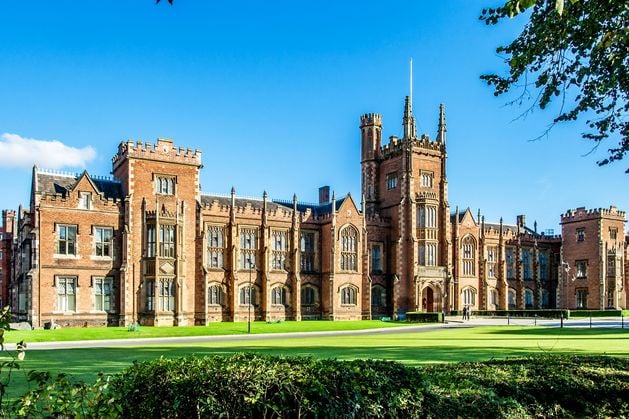A video game is aiming to help stroke survivors regain movement in their arms as part of a new project led by researchers at Queen’s University Belfast.
The researchers have launched the new study which features a wireless, brain-powered computer game to help regain arm movement.
The research team from the University’s School of Psychology is inviting 50 stroke survivors to take part in the one-year project testing rehabilitation that combines neuroscience and gaming.
The approach centres on using brain signals to control a computer game, even if the user is unable to physically move their arm.
Strokes remain one of the leading causes of adult disability in Northern Ireland, and for those who do survive, up to 80% face arm or hand weaknesses.
As a result, tasks such as getting dressed, cooking, and writing are made much more difficult.
Brains are adaptable through a process known as neuroplasticity; with research showing other parts of a person’s brain can take over lost functions, proving to be very successful when the correct kind of rehabilitation is used.
With this in mind, the Belfast researchers are kickstarting a one-year-long project using this new method.
Dr Kathy Ruddy is one of the lead researchers on the project, and explained how the study will work: “We are looking for 50 stroke survivors to take part in our new study. We will be asking them to wear a simple headset that reads brain activity while they imagine moving their affected arm.
“The brain signals are picked up and used to control a computer game. This form of “motor imagery” activates the same brain areas as real movement, and it may help keep these body parts healthy and active after a stroke, even when actual movement isn’t yet possible.”
UV-Reactive Phone Case Shows What Sunburn Looks Like
This technique, called motor imagery, is already used in some rehabilitation programmes, but the Queen’s team is aiming to make it more engaging and accessible.
The hope is that even if physical movement is not yet possible, imagining movement can help preserve, and eventually, rebuild neural connections involved in controlling the arm.
The project is funded by Northern Ireland Chest Heart & Stroke (NICHS), a charity that works to prevent strokes and care for those who have experienced strokes.
As part of the study’s launch, an information event will be held at Riddel Hall, Stranmillis, on Thursday, August 7 from 11 am to 3 pm. Stroke survivors, their carers, and healthcare professionals are invited to attend.
The event will offer an opportunity to learn more about the research and speak directly with the researchers.
